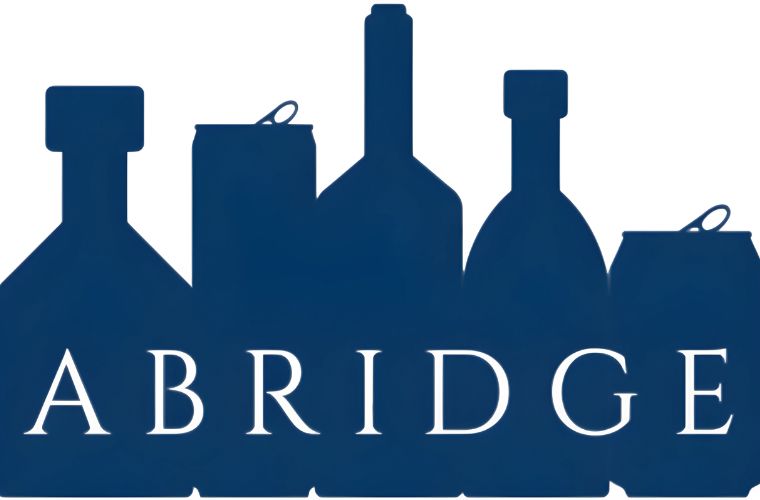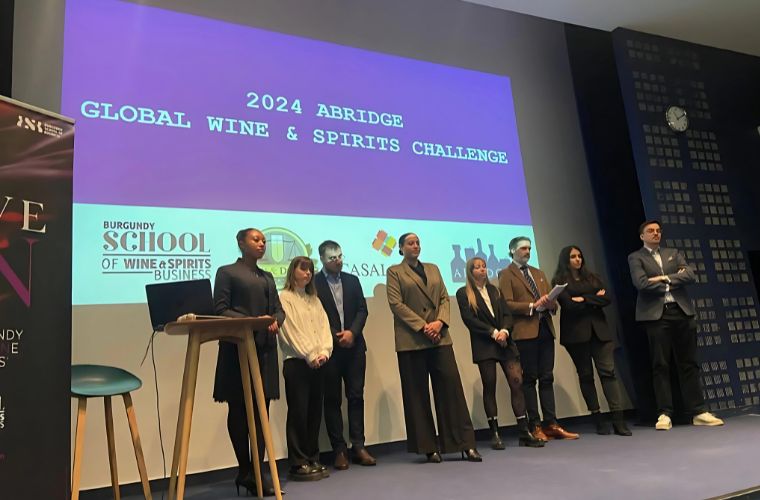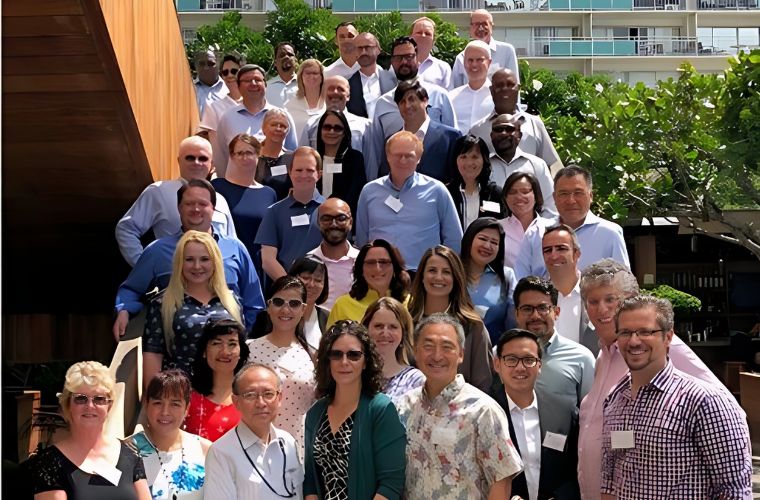Super Early Bird Deadline
October 31, 2025
Judging
Date
May 18, 2026
Winners
Announced
June 10, 2026

In this interview, we delve into the world of international alcohol beverage regulations with Bennett Caplan, a key figure at Abridge, a leading online database for regulatory norms. We discuss how Abridge assists alcohol companies in navigating the complex web of international regulations, especially in light of their recent expansion to include a wider range of beverages. We explore how Abridge's services have evolved to meet the needs of an ever-changing regulatory landscape.
We introduced Abridge (www.abridgebev.com) - a comprehensive online database of regulations from 110+ countries around the world - in 2009 for entities trading wine internationally. We expanded our database to include distilled spirits in 2019 and “other alcoholic beverages” (such as RTDs, seltzers, and no and low-alcohol beverages) in 2023.

Abridge’s subscribers - beverage manufacturers, both large and small - have access to the latest regulatory norms and compliance information, as well as relevant international agreements, for categories such as certification, composition, definitions, labeling, production, and tariffs. Subscribers can quickly and accurately identify relevant rules in selected markets. They can also view regulations from different countries in side-by-side comparisons arranged by topics.
Abridge also offers access to market and industry reports with vital information on the alcohol beverage sector, as well as codes of practice and guidance materials to help producers and exporters comply with mandatory regulations and voluntary norms. We also facilitate networking by providing links and contact information for industry, government, and inter-governmental organizations.
I have had the privilege of working with some of the most talented professionals involved in the alcohol beverage sector. My varied career has afforded me the opportunity to understand the trade from the perspectives of business, law, production, and government affairs, and to see how similarly situated firms can approach identical issues quite differently. I have also seen how companies can best integrate product innovation and compliance with their business strategies.
Abridge has been fortunate to be engaged with some key international organizations in the wine sector, interacting with the International Organization of Vine and Wine, the World Wine Trade Group, and Codex Alimentarius, among others. Abridge also serves as a resource for government officials as they consider changes to existing alcohol regulations. Our database enables government officials to view “best practices” as they update and harmonize norms, allowing them to pull up hard-to-find alcohol regulations and trade agreements from around the world and introduce consistent, practical approaches. This in turn has paved the way for the trade to engage in business with more certainty and stability in the international marketplace.

Image: Abridge Wine & Spirits Competition winners
Abridge also engages with universities. We recently held our fifth annual Abridge Wine & Spirits Competition on 04-05 March 2024 in Dijon, France. This academic competition brings together students from the School of Wine & Spirits Business of the Burgundy School of Business, and Institute Georges Chappaz de la Vigne et du vin en Champagne. Each year, teams of students are challenged to defend their strategies for exporting wine and spirits to target countries before a jury of international experts.
Long-standing obstacles have become ever more complicated, even as brand-new challenges have arisen. Issues include the emergence of more sophisticated trade and non-tariff barriers, the critical need to embrace the aims of sustainability and alcoholic beverages being caught up in unrelated trade retaliation. One of the most pressing issues involves the emergence of yet more complicated and unnecessary regulations. The trade has understandably responded by pushing for regulatory coherence. One particularly notable effort included the introduction in 2014 of the Tbilisi principles which promote good regulatory practice principles for wine. These common-sense rules – such as avoiding unnecessary analyses, engaging in regulatory cooperation, adopting common systems of scientific units related to regulatory limits, and ensuring that regulatory limits were approved by accredited laboratories – offered conditions that encouraged companies to engage in the international marketplace. Without such efforts, unclear, inconsistent, and unreasonable rules undermine the confidence of companies attempting to sell alcoholic beverages in other countries.

Image: APEC Wine Regulators Forum - 21 nations, supports sustainable economic growth and prosperity in the region.
The trade is facing unprecedented challenges from those who would reconceptualize the view that “responsible consumption” should no longer serve as the standard by which consumers should approach drinking. The concerted effort to promote the idea that there is “no safe level” or “NSL” of alcohol consumption calls into question the legitimacy of wine, beer, and distilled spirits as legal products. Further, the idea that alcoholic beverage companies should be frozen out of all discussions around problematic consumption is difficult to square with the need to encourage sound corporate practices. Abridge focuses on the regulation of alcoholic beverages as lawfully traded products. That said, those painting alcoholic beverages as an illegitimate product are having an impact. The industry is regrettably witnessing an unprecedented number of punitive regulations based on this growing perception.
A couple of years ago, a publication of the World Health Organization’s Less Alcohol Unit entitled, “Reporting on alcohol, a guide for Journalists,” began with this statement: “No amount of alcohol is safe to drink.” The WHO’s guide states that “risks to health start from the first drop of any alcoholic beverage, so it is not possible to consume safely.” The guide goes on to assert that alcohol consumption is a “top risk factor for ill-health and early death,” contributing to 3 million deaths annually, with a “clear and convincing causal link” with cancer and heart disease. The WHO has pushed for governments to introduce regulations, such as advertising and marketing restrictions, higher excise taxes, and minimum prices for alcoholic beverages -- all designed to discourage all alcohol consumption. The image of alcohol as increasingly akin to tobacco and the resulting restrictions will challenge the industry in countries all over the world. Abridge allows the trade to track many of these changes as they take the form of government regulations.
Image: Bennett Caplan at ProWein 2024 in Düsseldorf, discussing regulatory compliance matters and innovations in the alcohol beverage industry in person.
Further, the WHO and others are portraying the alcohol industry as an unreliable and disingenuous player, hampering the ability of the industry to offer solutions for reducing the harmful consumption of alcoholic beverages. Just as the image of tobacco declined in a relatively short amount of time, so too may alcohol due to this new “no safe level” paradigm shift.
I would share that this is a wonderful industry offering legitimate products that may be enjoyed responsibly around the world. And I would note that with more product variety than ever before - with RTDs, seltzers, and no and low alcohol offerings - an unprecedented level of product innovation will challenge companies as never before to comply with complicated national regulations.
[[relatedPurchasesItems-61]]
Bennett Caplan's insights shed light on the intricate world of alcoholic beverage regulations. As the industry faces challenges such as changing consumer perceptions and regulatory complexities, Abridge's role in providing up-to-date information and fostering collaboration is more crucial than ever. Through its comprehensive database and industry engagement, Abridge continues to play a vital role in helping alcohol beverage companies navigate the global regulatory environment.
In conversation with Malvika Patel, Editor and VP, Beverage Trade Network
Enter your Wines now and get in front of top Sommeliers, Wine Directors, and On-Premise Wine Buyers of USA.
